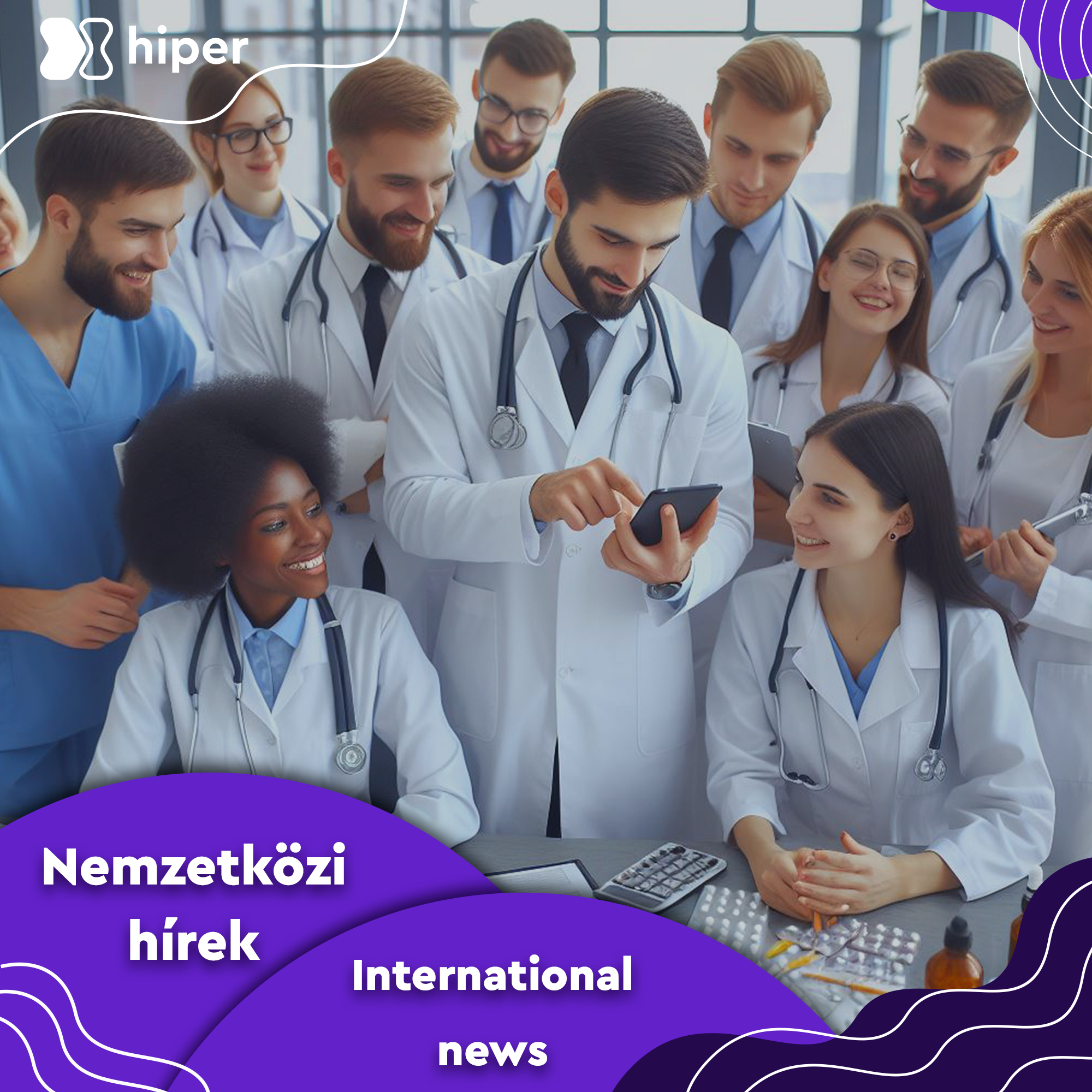International news 2025/2
Belföldi hírek, 19 Feb 2025
In our current roundup of international healthcare news, we have selected the latest developments from the global media. We will cover the success of the dental cluster model in Hungarian primary dental care, Canada's more effective healthcare staffing strategy, the new artificial intelligence system introduced in U.S. nursing education, and how modern technological solutions are supporting nurses' daily work.

Prevention of Healthcare Worker Burnout Should Start in Educational Institutions
According to CDC research, nearly 80% of healthcare workers are women who are particularly vulnerable to burnout. A 2023 study revealed that 56% of nurses, 47% of physicians, and 54% of other clinical staff experience emotional exhaustion. Experts suggest that the solution lies not in workplace stress management, but in prevention starting at educational institutions. Schools and training programs need to equip students with tools to manage the emotional and psychological demands of the profession.
Source: MedPage Today
Hungarian Primary Dental Care Advances: 74 Dental Clusters Formed by End of 2023
The dental cluster model introduced in Hungarian primary dental care in 2021 shows significant progress. By December 31, 2023, 74 dental clusters were established nationwide, representing 30% of dental practices in Hungary. The clusters contain an average of nine practices each and aim to improve access to preventive dental services and enhance service quality. Research shows that the geographical distribution of clusters is uneven, with adult and mixed practices, as well as dental practices from larger cities and the capital, being more likely to join the initiative.
Source: Frontiersin
Finnish Research: AI Could Reduce Nurses' Workload
An international research project led by VTT Technical Research Centre of Finland has been launched to explore how artificial intelligence can support nurses' work. A significant portion of healthcare professionals' daily working hours is spent on digital tasks such as patient registration and documentation. The project aims to develop AI-based solutions that could reduce administrative burdens, allowing more time for patient care. Nurses and nursing students are being involved in the development process to ensure the technology is both usable and acceptable for end users.
Source: News Medical
Canadian Researchers Develop New Strategy for More Effective Healthcare Staffing
Researchers at Queen's University have created a comprehensive guide to improve healthcare workforce planning in Ontario province. The study aims to enhance the efficiency of the Ontario Health Teams (OHT) system, introduced in 2019 for integrated patient care. The researchers made recommendations in five key areas, including establishing strong leadership structures, improving data systems, and partnering with health education programs. The goal is to ensure the right number and mix of healthcare professionals are available to meet the specific health needs of the region.
Source: Queen's University Health Sciences
30,000 U.S. Nursing Students Test New Educational Artificial Intelligence
Sherpath AI, developed by Elsevier as the first artificial intelligence system specifically designed for nursing education, is achieving significant success in U.S. nursing education. The system has been tested by over 30,000 students and 3,000 instructors, with 200 more institutions gaining access in February 2025. The development is particularly timely, as the American Association of Colleges of Nursing reports nearly 66,000 applicants had to be rejected due to capacity constraints. Sherpath AI offers personalized learning, interactive dialogue, and diverse educational resources for both students and faculty.
Source: Elsevier Health
Technology Enhances Nursing Efficiency and Care Delivery
Healthcare is increasingly embracing innovative technological solutions to support nurses' work. Beyond modern medical devices, artificial intelligence, and telemedicine, lesser-known tools like smart wearables, AI assistants, and automated medication dispensing systems are revolutionizing nursing care. Technologies derived from space research are also significantly contributing to healthcare advancement, particularly in remote patient monitoring. These innovations help streamline workflows and improve patient care quality while reducing nurses' workload.
Source: DailyNurse



